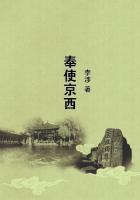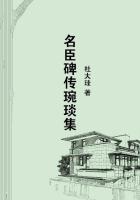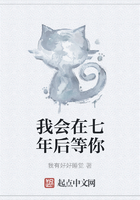On the night of the riot, as he was going from the Pont Royal to the apartment of Her Highness, he detected a group of villains under her windows. Six of them were attempting to enter by a ladder. He fired, and two fell. While he was reloading, the others shot at him. Had he not, in the flurry of the moment, fired both his pistols at the same time, he thinks he should not have been wounded, but might have punished the assailant. One of the men, he said, could have been easily taken by the national guard, who so glaringly encouraged the escape that he could almost swear the guard was a party concerned. The loss of blood had so exhausted him that he could not pursue the offender himself, whom otherwise he could have taken without any difficulty.
As the employing of my servant had only been proposed, and the sudden interruption of my conversation with Her Highness by the riot had prevented my ever communicating the project to him, I wondered how he got into the business, or ascertained so soon that the apartment of the Princess was in danger. He explained that he never had heard of its being so; but my own coachman having left me at the palace that day, and not hearing of me for some time, had driven home, and, fearing that my not returning arose from something which had happened, advised him to go to the Pont Royal and hear what he could learn, as there was a report of many persons having been murdered and thrown over the bridge.
My man took the advice, and armed himself to be ready in case of attack.
It was between one and two o'clock after midnight when he went. The first objects he perceived were these miscreants attempting to scale the palace.
He told me that the Queen had been most grossly insulted; that the gates of the Tuileries had been shut in consequence; that a small part alone remained open to the public, who were kept at their distance by a national ribbon, which none could pass without being instantly arrested.
This had prevented his apprising the Princess of the attempt which he had accidentally defeated, and which he wished me to communicate to her immediately. I did so by letter, which my good driver carried to Paris, and delivered safe into the hands of our benefactress.
The surprise of the Princess on hearing from me, and her pleasure at my good fortune in finding by accident such means, baffles all description.
Though she was at the time overwhelmed with the imminent dangers which threatened her, yet she still found leisure to show her kindness to those who were doing their best, though in vain, to serve her. The following letter, which she sent me in reply, written amidst all the uneasiness it describes, will speak for her more eloquently than my praises:
"I can understand your anxiety. It was well for you that you were unconscious of the dreadful scenes which were passing around you on that horrid day. The Princesse de Tarente, Madame de Tourzel, Madame de Mockau, and all the other ladies of the household owed the safety of their lives to one of the national guards having given his national cockade to the Queen. Her Majesty placed it on her head, unperceived by the mob. One of the gentlemen of the King's wardrobe provided the King and the Princesse Elizabeth with the same impenetrable shield. Though the cannibals came for murder, I could not but admire the enthusiastic deference that was shown to this symbol of authority, which instantly paralyzed, the daggers uplifted for our extermination.
"Merlin de Thionville was the stoic head of this party. The Princesse Elizabeth having pointed him out to me, I ventured to address him respecting the dangerous situation to which the Royal Family were daily exposed. I flattered him upon his influence over the majority of the faubourgs, to which only we could look for the extinction of these disorders. He replied that the despotism of the Court had set a bad example to the people; that he felt for the situation of the royal party as individuals, but he felt much more for the safety of the French nation, who were in still greater danger than Their Majesties had to dread, from the Austrian faction, by which a foreign army had been encouraged to invade the territory of France, where they were now waiting the opportunity of annihilating French liberty forever!
"To this Her Majesty replied, 'When the deputies of the Assembly have permitted, nay, I may say, encouraged this open violation of the King's asylum, and, by their indifference to the safety of all those who surround us, have sanctioned the daily insults to which we have been, and still are, exposed, it is not to be wondered, at that all Sovereigns should consider it their interest to make common cause with us, to crush internal commotions, levelled, not only against the throne, and the persons of the Sovereign and his family, but against the very principle of monarchy itself.'
"Here the King, though much intimidated for the situation of the Queen and his family, for whose heads the wretches were at that very moment howling in their ears, took up the conversation.















